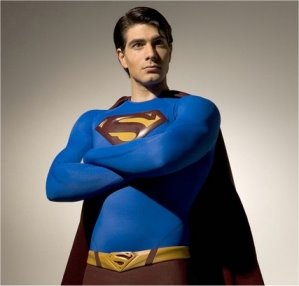 While preparing for a sermon I would give on July 4th weekend, it never occurred to me that I should mention anything about the secular holiday that would be only two days away from the time I gave my sermon. When I got to church and noticed a rather large banner saying “In God we Trust” with stars and strips on it, I knew it would be a rather glaring omission. After all, as the congregation looked towards the pulpit as I preached, it would be impossible for them to miss this patriotic banner out of the corner of their eye. So I did my best to ad lib a few lines about how Jesus frees us in healing us, etc., which is even greater than the freedoms we celebrate on the Fourth of July every year. Hopefully, the assembly thought that was good enough.
While preparing for a sermon I would give on July 4th weekend, it never occurred to me that I should mention anything about the secular holiday that would be only two days away from the time I gave my sermon. When I got to church and noticed a rather large banner saying “In God we Trust” with stars and strips on it, I knew it would be a rather glaring omission. After all, as the congregation looked towards the pulpit as I preached, it would be impossible for them to miss this patriotic banner out of the corner of their eye. So I did my best to ad lib a few lines about how Jesus frees us in healing us, etc., which is even greater than the freedoms we celebrate on the Fourth of July every year. Hopefully, the assembly thought that was good enough.Now, I would love to give a whole sermon on how the political freedoms Americans celebrate have theological underpinnings. After all, the founders could not have insisted on concepts concerning the freedom of man without first understanding that God created man to be free. (Of course, after the Fall, man became in bondage to sin, only to be made free again through Christ on the cross.) So if God intended man to be free and not enslaved, then naturally the systems that govern man should protect man from encroachments on such freedom, all the while condemning as well as possible the sinful aspect of man’s nature. So from this theological understanding of man as both free and enslaved, forgiven and sinful, comes our rare and wonderful constitutional republic that both protects man’s inherent freedom (don’t forget the Bill of Rights all limit government power) as well as protect man from his own sinful nature.
There is such a thing as the American way, and this is it, written into our Constitution. This is nothing to be ashamed of, but instead it rightly should be celebrated, not with a sense of naked nationalism, but with the understanding that what makes this nation’s founding so unique is not its political brilliance as much as the political carrying out of theological truths about the nature of man.
So why, then, has Superman stopped fighting for the “American way?” Having watched Superman IV in the past 12 months, I was struck by two things: how much worse it was than what I remember as a 12-year-old, and how clearly Reeve’s Superman stood for defending America. (The anti-nuclear proliferation idealism in that movie is rather silly, however.) The same was true after I watched Rocky IV; James Brown’ rendition of “Living in America” simply would not be filmed in today’s Hollywood studios. Having never read the Superman comic book, I am only learning now how prominent that theme is throughout the series, that Superman’s whole identity is rooted around preserving the noble values that America stands for. Yet, in “Superman Returns”, the phrase was purposely ignored by the writers and hinted at bitterly and cynically when the newspaper’s editor says, “Whatever happened to ‘truth, justice, and all that stuff?” or something along those lines. It seems even Superman has turned postmodern, skeptical of standing for the most basic values Americans cherish. I know the trend for comic book movies has been to turn dark (a change I welcome), ushered in by Tim Burton’s first Batman. But what good are comic book heroes if they do not fight for the values America excels at defending, in ideal if nothing else?
When I said I did not want to see the movie because of this blatant swipe at America, my fiancée reminded me that I loved the new Batman movie, which also took a turn towards the dark cynicism of postmodernism. But in thinking about it, Batman and Superman represent very different things. (I never thought I would make the following analysis.) Batman, a self-made hero of sorts, is more about conquering the inner demons that haunt him, and using the pain inside of him to help those in need. Superman is not even human, and seems to have chosen America to defend because of the goodness he experiences in the heartland, my fiancee’s home state of Kansas.
For those of you who aren’t like Comic Book guy on The Simpsons, you’re a lot like me. I could care less about owning Spiderman #1 (except for the monetary value), and I couldn’t tell you how many X-Men there are. But I do know that a $250 million movie assumes a place in speaking for and to the culture. Superman has officially become an America doubter like so many in Hollywood who doubt the greatness of America, who don’t trust its history or values, and who do not see the need for there to be an American defender any longer. Yes, no doubt the writers of the movie feel the world needs Superman to defend them against America more than America needs Superman to defend itself against the world.

No comments:
Post a Comment